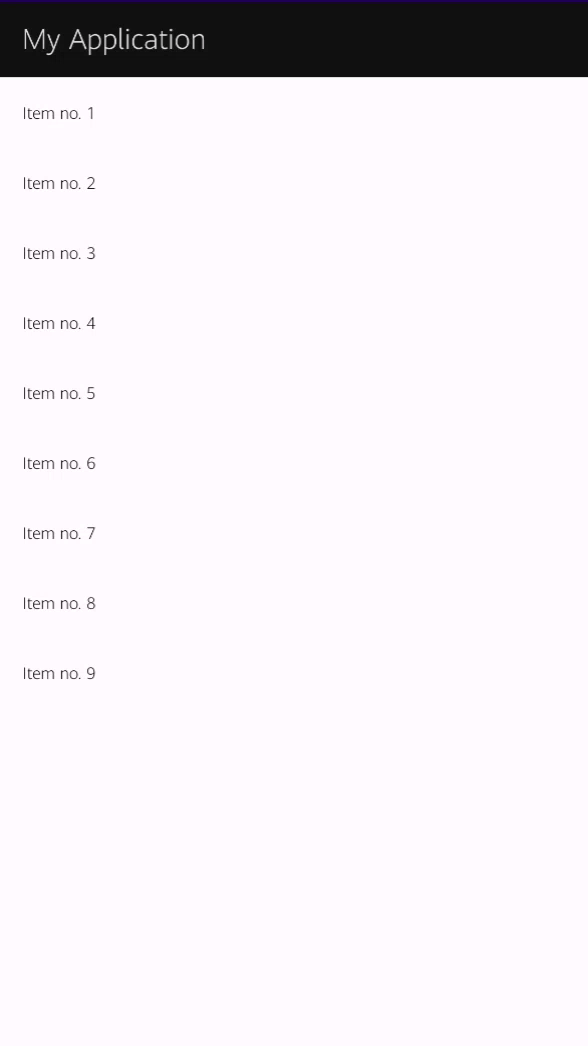So I made a quick test (this whole thing doesn't fit in a comment so I'm writing an answer)
My Activity contains the adapter, RV, and observes a viewModel. When the ViewModel pushes the initial list from the repo via LiveData, I save a local copy of the list in mutable form (just for the purpose of this test) so I can quickly mutate it on the fly.
This is my "onMove" implementation:
val from = viewHolder.bindingAdapterPosition
val to = target.bindingAdapterPosition
list[from] = list[to].also { list[to] = list[from] }
adapter.submitList(list)
return true
I also added this log to verify something:
Log.d("###", "onMove from: $from (${list[from].id}) to: $to (${list[to].id})")
And I noticed it.. works. But because I'm returning true (you seem to be returning false).
Now... unfortunately, if you drag fast up and down, this causes the list to eventually become shuffled:
E.g.: Let's suppose there are 10 items from 0-9.
You want to grab item 0 and put it between item 1 and 2.
You start Dragging item 0 at position 0, and move it a bit down so now it's between 1 and 2, the new item position in the onMove method is 1 (so far, you're still dragging). Now if you slowly drag further (to position 2), the onMove method is from 1 to 2, NOT from 0 to 2. This is because I returned "true" so every onMove is a "finished operation". This is fine, since the operations are slow and the ListAdapter has time to update and calculate stuff.
But when you drag fast, the operations go out of sync before the adapter has time to catch up.
If you return false instead (like you do) then you get various other effects:
- The RecyclerView Animations don't play (while you drag) since the viewHolders haven't been "moved" yet. (you returned false)
- The
onMove method is then spammed every time you move your finger over a viewHolder, since the framework wants to perform this move again... but the list is already modified...
So you'd get something like (similar example above, 10 items, moving the item 0)> let's say each item has an ID that corresponds to its position+1 (in the initial state, so item at position 0 has id 1, item at position 1 has id 2, etc.)
This is what the log shows while I slowly drag item 0 "down":
(format is `from: position(id of item from) to: position(id of item to)
onMove from: 0 (1) to: 1 (2) // Initial drag of first item down to 2nd item.
onMove from: 0 (2) to: 1 (1) // now the list is inverted, notice the IDs.
onMove from: 0 (1) to: 1 (2) // Back to square one.
onMove from: 0 (2) to: 1 (1) // and undo-again...
I just cut it there, but you can see how it's bouncing all over the place back and forth. I believe this is because you return false but modify the list behind the scenes, so it's getting confused. on one side of the equation the "data" says one thing, (and so does the diff util), but on the other, the adapter is oblivious to this change, at least "yet" until the computations are done, which, as you guessed, when you drag super fast, is not enough time.
Unfortunately, I don't have a good answer (today) as to what would the best approach be. Perhaps, not relying on the ListAdapter's behavior and implementing a normal adapter, where you have better list/source control of the data and when to call submitList and when to simply notifyItemChanged or moved between two positions may be a better alternative for this use-case.
Apologies for the useless answer.


adapterPositioninstead ofbindingAdapterPositionor is that a new thing due to ViewBinding? – CleaningadapterPositionis now deprecated and replaced withabsoluteAdapterPositionorbindingAdapterPosition– KedListAdapterusesAsyncListDiffer. My diff util compares id's onareItemsTheSameand then the contents onareContentsTheSame. I even tried to do it without the custom object with many contents and rather only use string but still gets the same issue. TheonItemMovedare called the same amount as the number of position changes when dragged slowly, and inconsistent counts (less than the supposed amount as some are skipped) when dragged quickly. – Kedlist[from] = list[to].also { list[to] = list[from] }(though I'd argue this is more obscure for newcomers and basically anyone who reads this code) :) – Cleaning